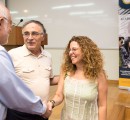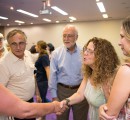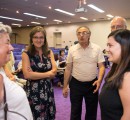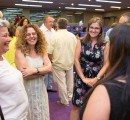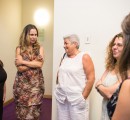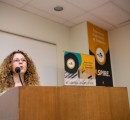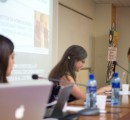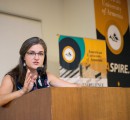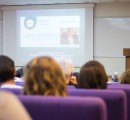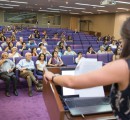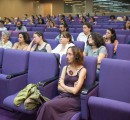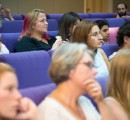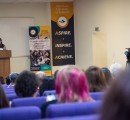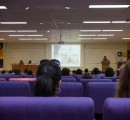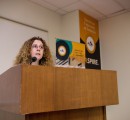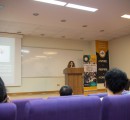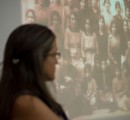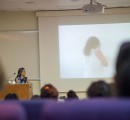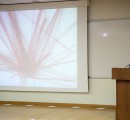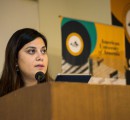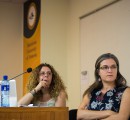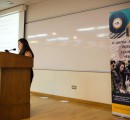
Written on Women’s Bodies: Interdisciplinary Perspectives on Gender and Genocide
3 min readYEREVAN, Armenia – On August 12, 2015, the American University of Armenia (AUA) hosted a public lecture entitled, “Written on Women’s Bodies: Interdisciplinary Perspectives on Gender and Genocide,” with scholars Hourig Attarian, Lerna Ekmekcioglu, and Melissa Bilal. The talk focused on gendered consequences of genocide, dispersal, and denial, with each speaker presenting her research from the unique perspective of her field of work.
The speakers approached the topic through three main lenses: Lerna from the lens of Ottoman Turkish policies and post-war Armenian policies in Constantinople towards retrieving kidnapped women and their children born of rape, Hourig from the lens of oral histories and storytelling as a method of piecing together the narratives of the women of the genocide, and Melissa through the lullabies of Armenian grandmothers in Turkey and how they transmit the knowledge of the genocide and its silencing.
Melissa and Lerna are Armenians from Turkey, while Hourig is an Armenian from Beirut. Despite their varied life paths and academic concentrations, the speakers felt personally connected to each topic, and also to each other, “As Armenian feminist academics, all three of us have similar concerns in life. We come from different disciplines, we work on both similar and different time periods and geographies, and we employ various different methodologies, but at the same time our works are intertwined in multiple points,” said Melissa.
Deciding to tell the story of the collective experience, memory, and consequence of being a woman during the genocide had much to do with the speakers’ own personal backgrounds. For Melissa, whose dissertation focused on the historical and ethnographic study of the Armenian lullaby in Turkey, she found that her own history was woven into her research. “As a great grand child of genocide survivors, every interview I conducted for my research was also a step towards understanding the silences and gaps in the narratives circulated within my own family,” she said.
Hourig, whose work focuses on storytelling, comments that stories are intrinsic to our lives as humans: “We live our lives narratively, so it makes sense to also tell stories to understand our lives better – who we are, where we come from, why we do what we do. In other words, I consider that we consciously refine and redefine our identities through “storying” ourselves, since it is an essential way of understanding ourselves, our actions, and our reactions within a historical and social context.”
Throughout the lecture, the speakers used songs, photographs, and primary resources to highlight the narratives of the women of the Armenian Genocide and the consequences they faced as a result of their gender.
For AUA, this event was more than just an analysis of the past; it was a comment on the role the university can play in women’s studies in the future. President Armen Der Kiureghian remarked, “This was another fascinating event at AUA, bringing three accomplished scholars together to provide an interdisciplinary examination of the condition of Armenian women in Turkey in the aftermath of the Genocide. Gender and women’s studies is important for us, since it is a topic that is not well explored in Armenia and the region. We hope to start regular courses in this area and perhaps one day establish a center.”
For more complete professional biographies of the speakers, please click here.
Founded in 1991, the American University of Armenia (AUA) is a private, independent university located in Yerevan, Armenia and affiliated with the University of California. AUA provides a global education in Armenia and the region, offering high-quality, graduate and undergraduate studies, encouraging civic engagement, and promoting public service and democratic values.

